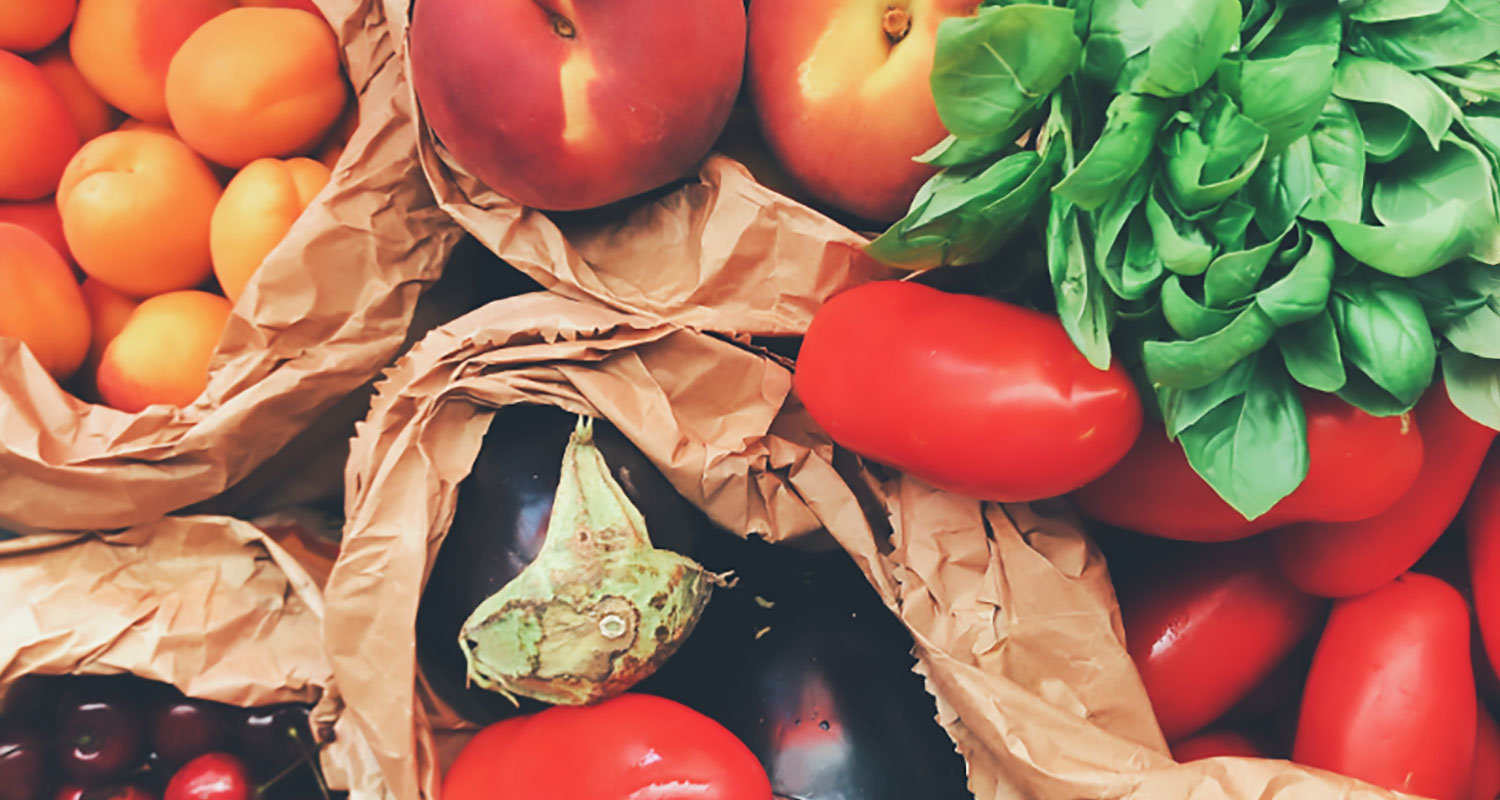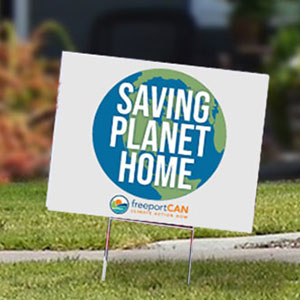
30 Jul August’s Action: Eat Planet-Friendly
When you think of summer in Maine, what comes to mind? Do you think of backyard cookouts with friends, picnics on the beach, or a cold slice of watermelon on a hot day? Or is it picking up local corn on the cob from that roadside stand, the colorful selection of fresh fruits and vegetables at the Famer’s Market, or finding local produce featured in the grocery store?
The food we choose not only shapes our summer memories, it can also help us live a more climate-friendly lifestyle. That’s because the food we eat – both the production and transportation – is responsible for about 30% of annual global greenhouse gas (GHG) emissions. Therefore, when we opt to center our meals around locally-grown produce, we support the growers and the economy here at home in Maine while also making a dent in global GHG emissions.
Did you know – meat-based diets are the most costly to our climate?
On a per-calorie basis, meat requires more energy (twice as much, according to one study) to produce, AND creates more GHG than growing grain or vegetables. This is because animals are not all that efficient at converting the plants they eat into energy our bodies can use. Furthermore, some animals (like cows and sheep) produce methane, a potent GHG, as they digest those plants. In fact, one serving of beef creates more GHG emissions than 20 servings of vegetables!
But you do not need to go cold-turkey to eat more climate-friendly!
There are a wide range of steps you can take to reduce GHG emissions through your food choices:
- Eat more plants. Choosing a plant-based diet can reduce your individual annual GHG emissions by as much as 1.5 tons (vegetarian) or 2.1 tons (vegan). Try eating a plant-based diet one day per week, or if you already do this – go meatless one MORE day per week. If eating plant-based for a full day feels like a big step, select one meal of the day (like breakfast or lunch) to go plant-based.
- Shop local and in-season. Approximately 14% of the total energy used in the U.S. food system comes from transporting food from where it is produced to where we can access it. Therefore, eating seasonal, locally-produced food reduces fossil fuel emissions from transporting food long distances and has the added bonus of supporting Maine’s farming families. Check out your nearby Farmers Markets or look for produce labeled “local” in your grocery store.
- When you can, buy organic. In addition to health benefits associated with eating foods produced without pesticides, eating organic reduces reliance on fertilizers that are derived from fossil fuels. These fertilizers are also a source of nitrous oxide emissions, a GHG that is even more damaging than carbon dioxide and methane. We can each reduce our annual individual carbon footprint by 0.9 tons just by eating organic.
- Select more climate-friendly meat options. For example, the GHG emissions associated with producing 1 kg (2.2 lbs) of beef is 7.2 times greater than the GHG emissions associated with producing the same amount of chicken.
 Be Part of Saving Planet Home
Be Part of Saving Planet Home
With the bounty of local produce available during Summer in Maine, what better time is there to eat more plants and join us in Saving Planet Home?! Learn more about our program to highlight the actions the members of our community are taking to tackle climate change.
Need some new inspiration for what to make with those fruits and veggies?
Some of our favorite recipes can be found on-line:
Naturally Ella has a great selection of vegetarian recipes that are quick, easy, and sure to please even the pickiest amongst your friends and family. Recipes are categorized by season, making it easy to find the perfect use for your seasonal market finds. Some of our favorites? Zucchini Soba Noodles with Tahini Sauce and Summer Vegetarian Tacos with Avocado Cream are real hits.
The Minimalist Baker is a great source for breakfast, lunch, dinner, or desert. Recipes are indexed by diet as well as season, so it is super simple to prepare a meal that meets any and all dietary needs. Rainbow Chard Hummus Wraps make a creative (and easy!) lunch from whatever veggies you have at hand, while Grilled Teriyaki Tofu Skewers are a great swap for your standard meat-kebabs for a cookout.
Shop at the Freeport Farmers Market
Have you been to the Freeport Farmers Market yet? You can find it on Fridays from 10 am to 1 pm until September 29 in Memorial Park on Bow Street. Come check out the superb selection of local foods and more, and swing by the FreeportCAN table to say hello!
For more information on climate-friendly eating or explore the facts found in this blog post, check out these websites:
University of Michigan Center for Sustainable Systems
UN Act Now: Food
Sources cited:
Center for Sustainable Systems, University of Michigan. 2023. “U.S. Food System Factsheet.” Pub. No. CSS01-06.
Center for Sustainable Systems, University of Michigan. 2023. “Carbon Footprint Factsheet.” Pub. No. CSS09-05.


